Keep your mind fresh with these foods

Which foods should you be eating whilst studying for the HSC, and why?
In previous articles, we’ve already talked about how avoiding hunger while studying is a great way to minimise procrastination by keeping your energy levels up – but what kinds of things should you be eating, and why?
While this is as much a matter of personal preference as anything else, there’s definitely some choices that are better than others when it comes to study time and nutrition, and these are some of our thoughts which could impact your sessions:
Sugary snacks aren’t a great idea, aim for complex carbs instead
Yes, we’re sorry! But to be honest, while cracking open a pack of Oreos might motivate you in the short term, eating high Glycemic Index (GI) foods like sugary snacks are more likely to actually spike your energy, and leave you feeling deprived a short while afterwards.
RELATED: Meet Our Talent 100 Students – Daniel
GI is a measure of how quickly your blood sugar is raised by consuming a food, and simple carbohydrates like sugar and those found in processed grains like white flour typically have a very high GI. This means they quickly raise your blood sugar levels (energising you), but then leave your hungry and de-energised again as your blood sugar drops more rapidly. While a spike in blood sugar might be useful before an athletic event, for prolonged periods of concentration, lower GI carbohydrates are actually better for you.
Consider instead consuming your carbohydrates in the form of crunchy vegetables like carrots and celery (with hummus), brown bread, brown rice or any other whole grain foods. You’ll find yourself feeling energised for longer, and this will improve your concentration; starting the day with whole-wheat bread, cereals, oats and other complex carbohydrates will also assist.
Hydration is very important
An often neglected part of nutrition, your water intake is still very important for dietary function and overall wellbeing and concentration.
Many people wait until they are thirsty to drink water! Not only is thirst a poor indicator of dehydration, but it’s also one one of the very last symptoms that you’re feeling dehydrated. By the time you’re thirsty, you’re already dehydrated and suffering from the effects of dehydration in terms of both mental and physical performance – whether you’re aware of it or not.
Want to know the best way to combat this? Always keep a water bottle handy and sip continuously while studying. Aim to consume at least 8 (250 mL) glasses of water each day, and increase consumption on days where you’re physically active, and if the temperature or humidity is relatively high.
Protein and fats are more satiating than carbohydrates
Protein is already typically regarded to be a very important nutrient, while fats are less so. But it’s very important to realise that having protein and fat-based snacks will likely keep you more satiated (full than carbohydrate equivalents).
Perhaps the biggest mistake in the history of nutritional advice has been to unfairly paint fat as a ‘bad’ nutrient. In fact, at least 20% of your caloric intake should come from healthy fast each day. Some great snacks include avocado, lean fish (like tuna), beans and legumes. Fat keeps your satiated better than carbohydrates, and avocados might just be our favourite study snack food ever!
Protein is also important in keeping you fuller for longer, as well as being used in cellular regeneration, muscle repair and digestion. Around 35% of your daily caloric intake ought to be protein (even higher if you are undertaking strenuous exercise). Great snacks that are sources of protein include tuna, grilled chicken, legumes, eggs and plain greek yoghurt.
Start the day with something relatively substantial for breakfast, especially if you plan to study later on
Although we’ve just been talking about snack foods to far, your overall nutrition through the day is what’s really critical to maintaining high energy levels and stable blood sugar in order to maximise your concentration.
The best way to do this is to ensure you don’t skip breakfast – even when you’re in a hurry. Breakfast is unambiguously the most important meal of the day, since you really need to kick your metabolism into gear to have enough energy throughout the day.
RELATED: Should I Study The HSC Or The International Baccalaureate?
Aim for a protein and complex-carb breakfast; whole-gran cereals, eggs, fruits, milk, oats and plain greek yoghurt are all great choices to keep you going all day.
Avoid sugary cereals, white bread or worst of all – no breakfast at all! If you’re in a rush, consider at least downing a glass of milk and eating an apple. Protein drinks are another option for those poor on time. This is especially important the morning of an exam – no matter how nervous or nauseous you feel, a light meal (at least) is necessary if you want enough energy to effectively concentrate.
Be mindful of your overall calorific intake
Dependent on body mass and minor variations in basal metabolic rate (BMR), the typical man requires 2,000 calories (8,000 kJ) per day to simply allow life sustaining processes to occur. A typical woman requires slightly fewer calories, at around 1,800 per day (7,200 kJ).
This figure increases if you’re undertaking any exercise, and also depends on environmental factors (you can actually burn slightly more energy when it’s colder). It’s important to realise that through exam periods, you might actually be less active. At this point, you need to think carefully about adjusting your usual calorie intake.




